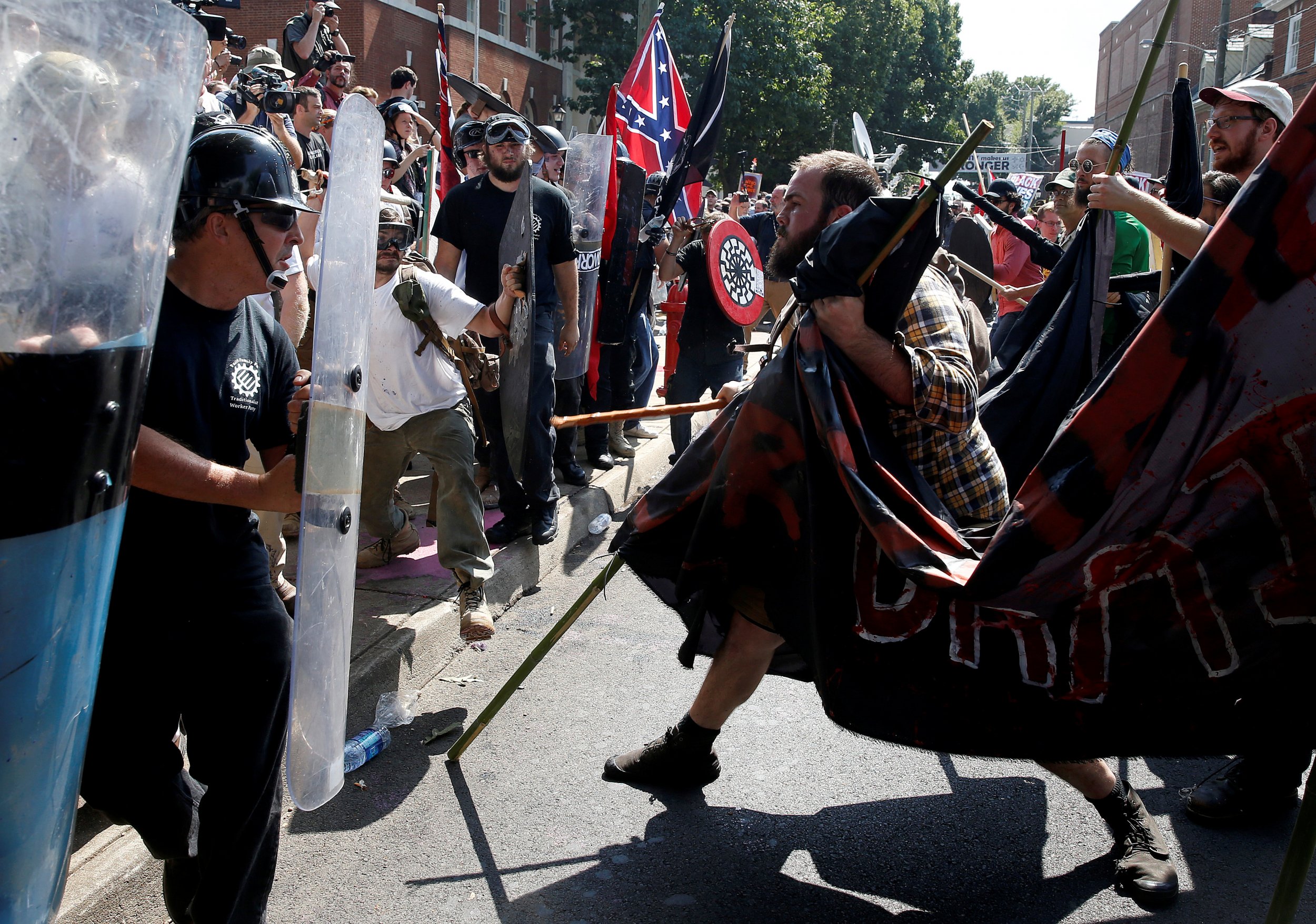
The white supremacist and neo-Nazi protesters in Charlottesville, Virginia, hold vile and abhorrent views, and they should be condemned in the strongest terms by all political, business, and civic leaders. That these poisonous views spilled over into the killing of Heather Heyer shows how odious ideas can metastasize through a crowd. But before hatred manifests into violence, it must first be conceived, processed and perceived in the brain. Understanding the physiological and evolutionary underpinnings of hate within this organ might offer clues as to what drove the protesters in Charlottesville to act in such a repulsive manner.
The brain has a "circuit" that activates when it processes hatred. In neuroscience parlance, this circuit is composed of the right putamen, medial frontal gyrus, premotor cortex and medial insula, according to a University College London study, in which researchers scanned the brains of participants as they looked at images of those they professed to hate. The researchers discovered that these brain regions show significant activity. Parts of this hate circuit are also known to activate during acts of aggression. It isn't remarkable that hatred and hostility share similar neural correlates. But it's physiological evidence that the distance between scorn and savagery can be measured not just in the size of crowds but the pathways of neurons. When David Duke explicitly and Donald Trump tacitly stoke hatred, they may be triggering the brain's hate circuit which can readily crackle into violent behavior.
The hate circuit may even override empathy. In a study by Stanford neuroscientist David Eagleman, the brains of participants were scanned while they watched as six hands on a screen were randomly swabbed with cotton or stabbed with a needle. When people witnessed the hands that were punctured by the syringe, the regions of their brains associated with pain activated. They felt empathy. The study was then replicated and each hand was displayed with a one-word religious label such as atheist, Christian, Jew or Muslim. When participants saw the hands being stabbed of those who shared their religious affiliations, their brains on average showed more activity in the regions known for empathy. Even atheists were more empathetic towards fellow atheists. As concludes Eagleman in his book The Brain: The Story of You: "It's about which team you're on."
Related: My life as a white supremacist
While people have historically formed teams to survive, such tribalism can dull empathy and fuel hatred towards others. The white supremacists and other right wing extremists who mobilized in Charlottesville were demonstrating hate. But they are hateful and angry because they're afraid. They fear that their "team" is losing significance in our country. A majority of children in the United States will be non-white by 2020. The overall non-white minority is projected to increase from 38 percent of the total population to 56 percent in 2060. The white supremacists are troubled by the rise of the "other teams" such as minorities and immigrants and may resort to violence in order to spread fear.
When President Donald Trump doesn't outright reject the white nationalist worldview, he implicitly condones those who have brains full of hate. When he retweets the opinions of white supremacists, he further stokes intolerance. When he castigates immigrants and implements religious-based travel bans, he provokes xenophobia and an "us against them" mentality. And because we increasingly see ourselves on different teams, it's ever more difficult for our brains to register empathy towards each other.
As our leader, President Trump has a moral responsibility to do more to call out and condemn bigotry—before it creates greater barriers between Americans. Throughout history, hatred has resulted in internecine battles that have splintered countries, the United States included. With a hateful brain, it's almost impossible to obtain what we most need—an open mind.
Deepak Chopra and Kabir Sehgal created Home: Where Everyone Is Welcome, a book of poems and album of songs inspired by American immigrants.
Uncommon Knowledge
Newsweek is committed to challenging conventional wisdom and finding connections in the search for common ground.
Newsweek is committed to challenging conventional wisdom and finding connections in the search for common ground.
About the writer
To read how Newsweek uses AI as a newsroom tool, Click here.








